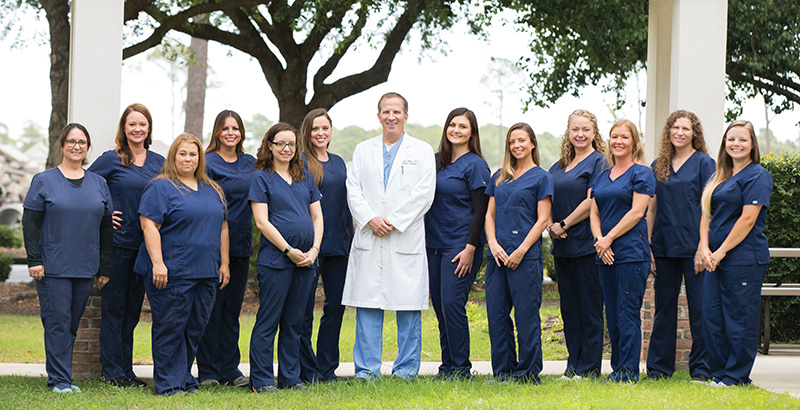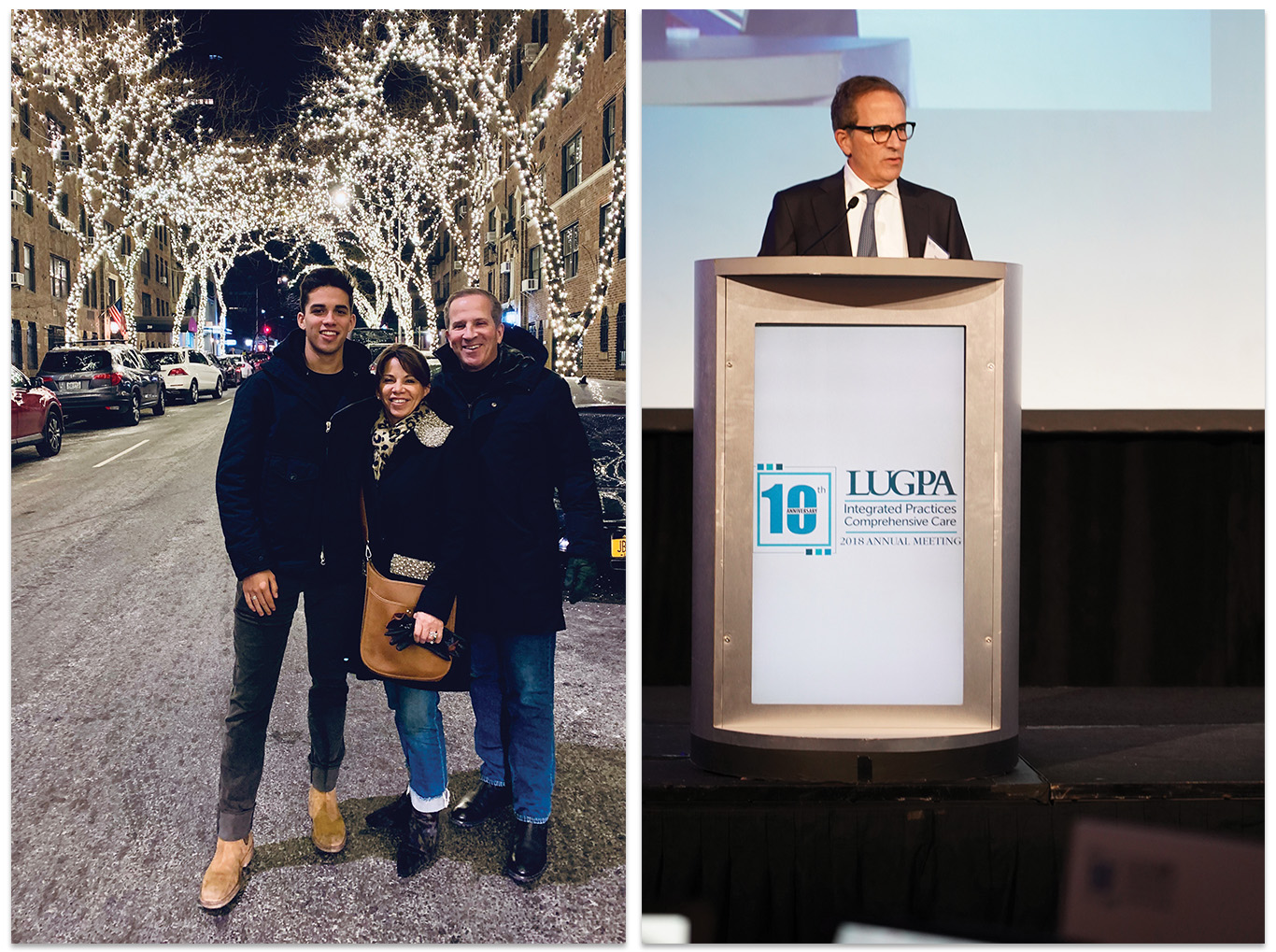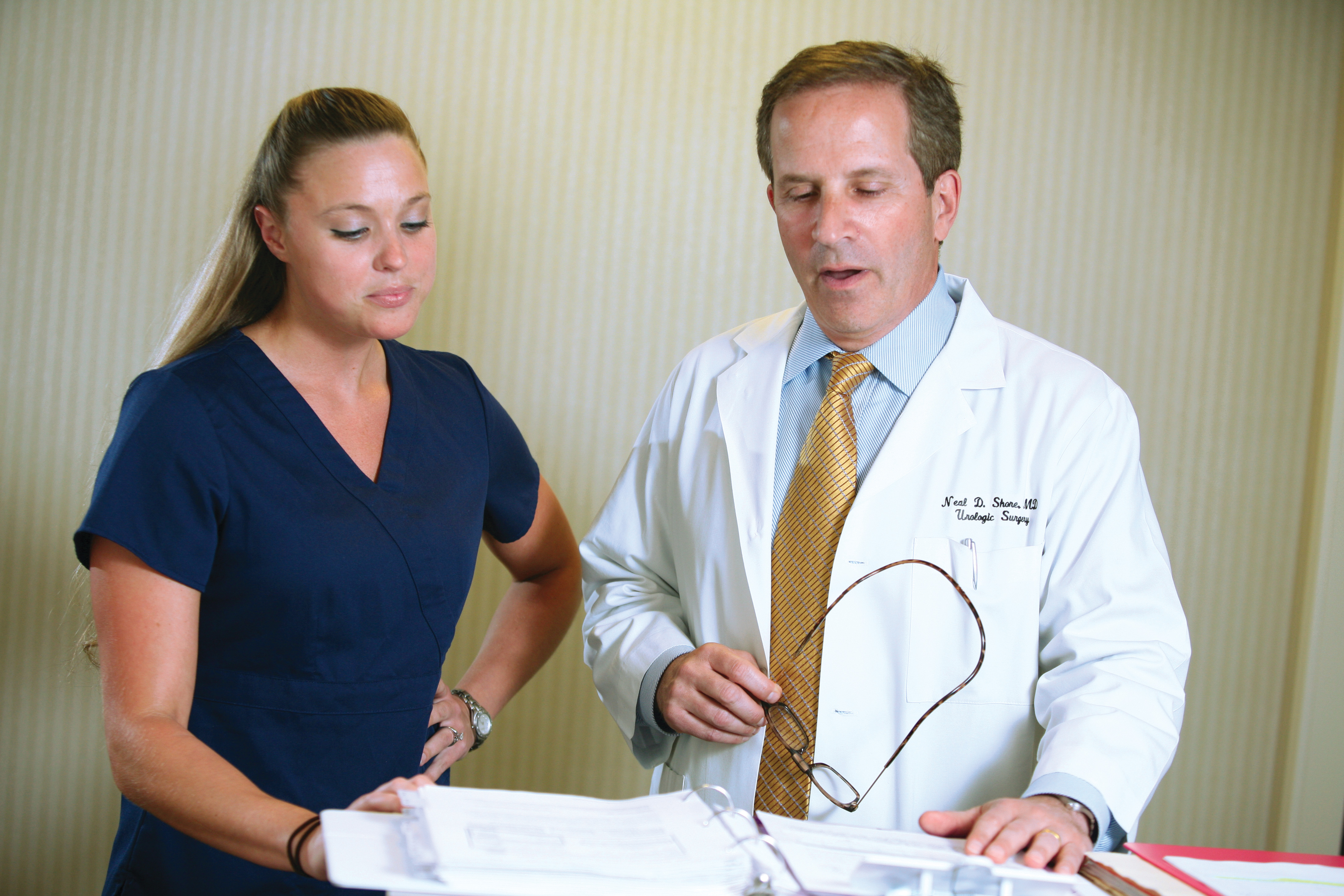Dr. Neal Shore offers cutting-edge oncology research and treatment right in our own backyard

We have a physician and researcher in our midst who has changed the landscape of treatment for bladder, prostate and kidney cancer over the past two decades. For the majority of Grand Strand residents who don’t have a need for oncology, Neal Shore’s global impact has likely escaped notice. However, for those in the field—whether it’s on the research, academic, practice or patient sides—his work is a game-changer. While his contributions benefit cancer patients worldwide, those who live in the area and have a vested interest in genital urinary (GU) oncology are definitely in the right place at the right time.
In addition to practicing with Atlantic Urology Clinics LLC (AUC) in Myrtle Beach, Shore has conducted nearly 400 clinical trials, focusing mainly on GU oncology, and written more than 200 peer-reviewed publications in medical journals, including nine articles published in the New England Journal of Medicine. He has founded and built the Carolina Urologic Research Center (CURC) into a nationally renowned facility that supports five board-certified urologists and 13 full-time research staff members. He has been involved in more than 20 therapeutics and more than a dozen diagnostic tests that have been FDA-approved for advanced cancer. He also founded CUSP Clinical Research Consortium, a uro-oncology trials management organization based in Annandale, Virginia, and DASHKO, a national urology practice data registry.

“Neal Shore has taken a drive and passion for urinary oncology research and made it into a national and international center,” says Thomas Paivanas, executive director of the CUSP Clinical Research Consortium. “You could go to virtually any oncologist in the country—in the country—as well as in the academic community, and they would know Neal Shore.”
After graduating from Duke University Medical School and completing training at New York Hospital Cornell Medical Center and Memorial Sloan-Kettering Cancer Center, Shore moved to Myrtle Beach in 1994 to begin practicing medicine. For the first decade or so, Shore’s practice was busy, yet gradually he noticed a problematic pattern in the field’s big picture.
“There absolutely was a paucity of systemic therapies for men and women who had advanced cancer. If you didn’t cure patients with surgery or radiation, we mostly had palliative therapies,” Shore says. “I was like most urologic surgeons: I spent the majority of my time diagnosing and operating on people, and many people we would cure, but many people we didn’t cure, or we didn’t have the opportunity to cure them. So there was an enormous unmet need in terms of what we could offer these patients. I thought, ‘We have to design studies, new trials to prove that a new therapy is effective, safe and tolerable.’”
The impulse was personal, as well as professional.
“I had a moment of personal unmet need,” says Shore. “I thought, ‘I don’t want to just keep doing this; it’s not going to be fulfilling.’ I needed more intellectual, medical and clinical challenge.”

So, Shore started gathering information from both the academic and industry sides of the field, meeting with medical affairs and research teams, and asking questions about how to get himself and his patients involved in studies and clinical trials. It was the beginning of an enterprise that would grow exponentially over the next 20 years.
“There were three motivations for me,” says Shore. “First, I wanted to help patients in our community. Second, I wanted to advance science and health care. Third, I wanted to remedy the problem of health care cost. Most people at that time, and even now, often have a very hard time affording approved therapies. We don’t live in an affluent area, where people can spend $10,000 on a drug. In the clinical studies I do, they’re almost invariably free for patients.”
Jennifer Sutton, Director of Nursing and Administration at CURC, has worked with Shore for 12 years. “It’s been an honor and a privilege to work with Dr. Shore,” Sutton says. “He’s very passionate about his research, and he has compassion for his patients. If we have a patient who is suited for a clinical trial and it’s the only way they can get care, Dr. Shore will fight for that patient. He advocates for his patients to get the care they need.”
Between his medical practice and his research facility, Shore has essentially led two full-time medical careers: one in practice and one in research that is typically conducted within academia and industry.
“Neal is a very prolific investigator-initiated researcher,” says Paivanas. “A lot of people look to academic research labs or pharmaceutical companies, but Neal comes up with these great ideas on his own. He says, ‘I see a gap here. I see a trend here.’ It takes a brilliant analytical mind to say, ‘Why can’t this change?’ Or ‘Why is this happening and not that?’”
Shore’s initial queries later landed him at a table with the leading oncologists in the world.
“It’s been great fun to work with all these really dynamic and highly accomplished people and be in there toe to toe, and they go, ‘What do you think, Neal? How is this going to work from both a scientific standpoint and then from a community adoption standpoint?’ So I’ve created a hybrid role for myself,” says Shore. “I feel very fortunate.”
Shore points to the commitment of his team at CURC in supporting his career.

“I could never have done any of this without an exceptional, dedicated team that has comprised Carolina Urologic Research Center all these years,” he says. “It’s a tremendous dedication to take care of patients who have advanced cancers.”
Shore also notes the nature of the physician/patient dynamic.
“I never stop appreciating the enormous trust of patients and families who come to me with really life-threatening illness,” he says. “It’s an enormous level of trust and respect that I have for being able to help these people throughout not only the Myrtle Beach area but throughout the Southeast.”

Shore also credits his wife, Sarah, with managing their home and family life—which includes their son Simon, 22, so that he could focus on his career. “Sarah’s incredible support made it all possible,” he says. “To say she’s taken on the lion’s share of responsibilities is an understatement.”
Paivanas, who claims, “The man doesn’t sleep!” with all Shore’s research and projects, believes the Grand Strand is hugely fortunate to have Shore in our midst.
“He’s an excellent physician, a brilliant researcher and a good, altruistic human being,” he says. “He does good, and he does it well. Very well.”